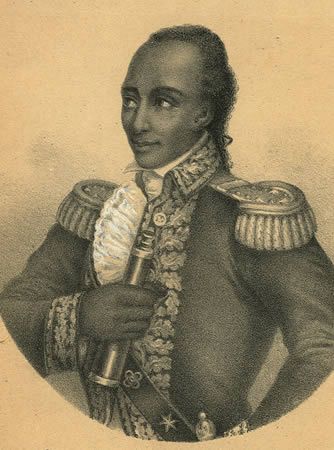Why am I even writing about this? Because the path that this man took is basically the same path that people today need to follow to get rich. The difference being that obviously the laws and business variables have changed. Below is a very brief history of his business career... (copied from wikipedia.com)
"On June 8, 1816, at the age of 26, the artisan slave was freed by his master Ellison (and likely father). He appeared to have purchased his freedom by money saved from a portion of his earnings. According to the 1800 law, five free men had to appear with his master in court to attest to April's ability to support himself.
The following year in 1817, Ellison moved to Sumter County to establish himself as a cotton gin maker. At first he paid for the labor of slave artisans who had been "hired out" by their masters. Within two years he purchased two artisan slaves to work in his shop. By 1830 he held four artisan slaves.
By 1840 he held a total of 12 slaves who worked in his cotton gin business. They were both skilled and unskilled, as the latter cut wood from his land for the gins. By the 1850s, he also operated a blacksmith shop with artisan slaves. He advertised his business in the Black River Watchman, the Sumter Southern Whig, and the Camden Gazzette.
As cotton prices were high, there was demand for Ellison's services. Eventually he earned enough to buy land: starting with more than 50 acres, by 1850 he increased it to 386 acres, when he also owned 37 slaves. The Ellison family joined the Episcopal Church of the Holy Cross in Stateburg. As a mark of their stature, on August 6, 1824, William Ellis was the first black to install a family bench on the first floor of the church, which was usually reserved for wealthy white families who could afford to pay for a bench (and donate to the church).
Ellison and his family established a family cemetery on their plantation. According to transcriptions of the gravestones, it appeared his wife and three generations of descendants, including his sons and their wives, were buried on this property. Burials took place into the early decades of the twentieth century.
In 1852, Ellison bought Keith Hill and Hickory Hill plantations, bringing his total of land to more than 1,000 acres. He gave each of his sons part of the properties. They had gone into business with him. In 1850 they each held slave women who worked as domestic servants for their families.
After the outbreak of the American Civil War, in 1861 Ellison offered aid from his 63 slaves to the Confederate Army and converted his cotton plantation to mixed crops to supply food to the cause. His sons also supported the Confederacy and tried to enlist, but were refused because of their race. They donated money, bought Confederate bonds, and were made destitute by the end of the war.
His first daughter's son, John Wilson Buckner, joined the 1st South Carolina Artillery on March 27, 1863. It was led by captains P.P. Galliard and Alexander Hamilton Boykin, local men, who informally admitted him because of the prestige of his family. Although wounded at Ft. Wagner, Buckner survived the war.
At his death, Ellison provided for dividing his property, including slaves, between his daughter and two surviving sons at his death. "He bequeathed $500 to a slave daughter he had sold."
From 1830-1865, the Ellisons were the only free blacks to own slaves in Sumter District."
Ok so what commonalities did you see with how wealth is grown today and how Ellison grew it? All the same variables are there! Firstly, he saved some money and bought his freedom (Emergency Fund people!). He most likely was an educated slave who knew how to read, write, and do some basic mathematics, which for that time period was way ahead of most whites. The fact that he could save any money at all suggests to me that his owner allowed for him to do side jobs. This along with his owner allowing for him to buy his freedom in my opinion was more proof that his owner was also his father.
Secondly, he had a marketable skill that he could use to start his own business.
Thirdly, he saved money from his business to buy more assets and to expand his business.
Fourthly, he used the cash flow from that business to diversify into other businesses, namely a land plantation.
Lastly, he developed multiple streams of income through his cotton gin business, plantation, and also bond investing.
Notice the similarities with today. Save for emergency fund, learn a skilled trade, save money to acquire assets, start your own business, diversify your assets, and develop multiple streams of income. These are all things that I have been advocating!
However, Mr. Ellison made one very huge mistake. He didn't diversify enough for geography and country. As a result he was mostly wiped out in the end. In the movie Gone with the Wind Rhett Butler comes out of the American Civil War smelling like roses because he parked much of his net worth in England via British pounds. Now to chastise Mr. Ellison for not doing this is being pedantic, but I have to show you at least where it could have been improved.
Before it all came crashing down, Mr. Ellison had 60 slaves, 1,000 acres, and I'm sure a pile of Confederate bonds and cash (before it became worthless), not to mention a very nice home. The land itself would have been worth $4,500,000 in today's dollars. When you add in the house and other "property" I'm sure that he would be worth at least $5 million today! Not bad for a man that started out as a slave and did it all BEFORE the Civil War!

 RSS Feed
RSS Feed
